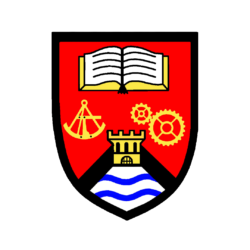Faculty of:
Head of Faculty:
Ms L. Specchia
Head of Department:
- Ms L. Specchia: Religious Studies
- Ms M. Miah: History
- Ms A. Ferguson: Geography
Members of staff:
- Ms M. Fitzmaurice (Head of Sixth Form)
- Ms A. Paczyinski (Head of Year 12)
- Mr W. Miah (Head of Year 9)
- Ms A. Begum (Head of Year 10)
- Ms N. Noorani (Psychology/Sociology Co-ordinator and G&T Co-ordinator)
- Ms M. Evans (Assistant Head of Year 7)
- Ms E. Koranteng
- Mr Y. Miah
- Mr N. James (Assistant Head of Year 11)
- Ms K. Abed
- Ms K. Rahim
Religious Studies
Faculty of:
Humanities
Head of Faculty:
Ms L. Specchia
Head of Department:
Ms L. Specchia
Members of staff:
- Mr W. Miah (Head of Year 8)
- Ms E. Koranteng
- Mr Y. Miah
Why are we here? What is our purpose? Does God exist?
What is Religious Studies at Stepney Green School?
Religious Studies aids students in examining their own beliefs and practices and express their own views. The subject enables students to investigate and understand what religious faith means to other people. Students are also given the opportunity to explore non-religious viewpoints and belief systems such as Humanism. Studying Religious Studies helps students appreciate the diversity of people around them, gain an understanding of others and develop an understanding of how people of different backgrounds can work together to build strong communities. Religious Studies enables students to be well rounded individuals.
How do students learn?
At Stepney Green we provide a broad and balanced curriculum that stimulates students love of learning. Religious Studies is taught through a range of activities. A focus in all lessons is discussion and debate in a sensitive and empathetic manner. Cross curricular links are made through different subjects such as Art, ICT and English and lessons and activities are in place. Writing, reading and oracy skills are perfected in lessons.
Outside learning and community links:
We have strong links with our local community, particularly with St Dunstan’s Church. Students annually attend workshops provided by the Church with a focus on the significance and importance of Easter and Christmas for Christians. Students support their local community through donations to the Food Bank and collections for Harvest Festival.
Students learn through engaging activities in and out of the classroom. Students visit places of worship to St Dunstan’s Church, Neasden Temple, British Library, National Art Gallery and even abroad to Rome!
How can parents and carers support their child at home?
– Ensure students have spent adequate amount of time completing homework set weekly
– Ensure students watch the News so they have an awareness of what is going on in the world
– Encourage discussion with friends and family about RE related topics and the ‘Ultimate Questions’
Key stage 3 Curriculum:
In Year 7, students study RE as part of integrated Humanities, along with History, Geography and Citizenship. They attend five lessons a week and learn about the key beliefs and practices of the six main religions in the UK alongside Humanism and Atheism. Students develop their oral and written articulacy especially through comparisons of beliefs and build empathy and understanding for others.
In Year 8, students continue to learn about the six main religions in more depth building on their prior knowledge/learning. Students learn about some of the big questions we have in life. For example; What is the purpose of life? Why are we here? Did God create the world? Is it always possible to forgive? Does Religion cause conflict or Peace? The skill of comparison is developed further in lessons and students attend two 50 minute lessons per week.
We study thematically and the units are:
Forgiveness
Science and Religion
Religion and Conflict
Spirited Arts Project- Expression of belief through art
Abrahamic Faiths
In Year 9 we teach students two religions – Christianity and Islam – in depth and detail which helps them to practice their skills of comparison and evaluation when looking at both sides of an argument. Alternative theories are taught such as situation ethics and moral ethics. Year 9 students build on their knowledge from year 8 about Christian beliefs and Islamic beliefs. There are many opportunities for discussion and it is done so in a respectful manner with students sharing their views and beliefs.
Key stage 4 Curriculum: GCSE Religious Studies
In Years 10 and 11, students study for their Edexcel GCSE exam. Students attend two 50 minute lessons per week. At Stepney Green College all students sit RE and are all entered for the full course GCSE exam. Students sit two exams each worth 50% of their final grade. One on Islam and the other on Christianity.
Christianity 3B: Religion, Philosophy and Social Justice through Christianity
– Christian Beliefs
– Philosophy of Religion
– Living the Christian Life
– Equality
Islam 1C: Religion and Ethics through Islam
– Muslim Beliefs
– Marriage and the Family
– Living the Muslim Life
– Matters of Life and Death
A range of resources have been created for all types of learners so students are always well supported to succeed in their exams.
Exam criteria:
| Students must | Weighting | |
| A01 | Demonstrate knowledge and understanding of religion and belief, including:Beliefs, practices and source of authorityInfluence on individuals, communities and societiesSimilarities and differences within and/or between religions and beliefs | 50% |
| A02 | Analyse and evaluate aspects of religion and belief including their significance and influence. | 50% |
Students are given the option to study Philosophy and Ethics at A level.
Edexcel exam board links:
https://qualifications.pearson.com/en/qualifications/edexcel-gcses/religious-studies-b-2016.html
KS5

